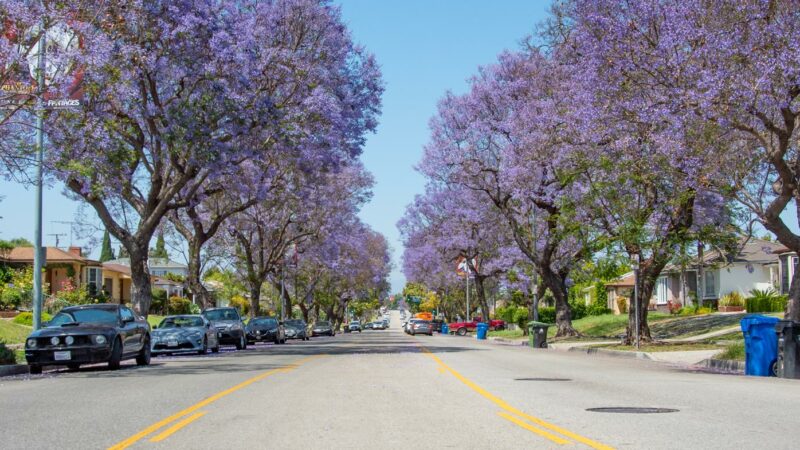City Plants is a partnership between the City of Los Angeles (LA), nonprofit organizations, and the private sector with a mission to grow a greener future for LA by engaging Angelenos to plant and care for trees. This is done through various programs, such as providing free trees for LA residents, to increase tree equity. Tree equity means having enough trees for all people to experience all the benefits trees provide ( see American Forests). Tree access in LA is currently inequitable, with nearly 20% of the urban tree canopy in just five census block groups. Wealthy neighborhoods, which have historically been the focus of investment, contain more trees (and thus shade cover) than low-income neighborhoods. This disparity leaves low-income communities more vulnerable to extreme heat, which is becoming more frequent and intense. As low-income communities often have limited access to air conditioning or other ways to stay cool, trees are an essential source of relief from the heat. In addition to providing shade and cooling, trees mitigate climate change and provide clean air, animal habitat, mental and physical health benefits, and aesthetic value to communities, making them an essential feature of livable urban environments.
City Plants’ Tree Ambassador – Promotor Forestal Program is a “grassroots, bilingual community organizing program dedicated to amplifying community voices and planting trees in historically disinvested communities in Los Angeles.” The program provides paid training and support to residents to plant and care for trees and reduce heat vulnerability in neighborhoods with fewer trees and low canopy cover. Throughout the 2022-23 academic year, our team will analyze the effectiveness of the Tree Ambassador—Promotor Forestal Program by 1) identifying ways to plant trees in neighborhoods with limited planting space, 2) monitoring existing tree health, 3) surveying residents of disinvested communities about their perceptions of community tree stewardship, and 4) analyzing city codes that affect neighborhood greening. In doing so, we hope to identify key barriers and opportunities to improve the program’s effectiveness.
View our Final Report (Reduced Size – 6 MB)
Student Team: Elana Baldwin, Isabel Dawson, Misheel Enkhbold, Benjamin Greenstein, Casey Kiessner, Fidel Negrete, Daniela Santana, and Sasha Vagramov
Client: City Plants
Advisor: Edith de Guzman

